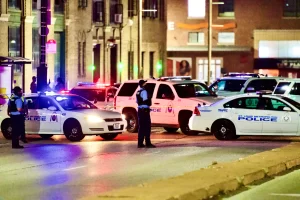Once again the St. Louis Public School district is at a crossroads. Yet, instead of reviewing evidence-based successful public school models in the country or listening to local stakeholders close to the issues of education, the district wants to revisit the failed practice of hiring a turn around company to save its low-performing schools.
There seemed to be surprise at the intensity of public push-back to this portion of the superintendent’s district plan. Many of us are still suffering from Educational Post Traumatic Stress Disorder (EPTSD) from the psychological, financial and academic destruction wreaked on the district by William “Demolition Man” Roberti from Alvarez Marsal LLC. Given a cool $5 million contract a decade ago, Roberti closed down 21 schools, laid off 1000 employees, privatized services, froze teacher salaries and hired highly-paid friends to assist in the demolition. After his year’s contract, Roberti left the district in shambles. His cheerleaders included Mayor Slay and former mayor Vince Schoemehl who’s on record saying he wished Roberti could’ve stayed another year.
The flashbacks to the Roberti regime and all that flowed from it are painful reminders of that period. Roberti’s delusion of making “tremendous strides” led to the eventual state take-over of a district on the brink of losing its accreditation. The track record of the Department of Elementary and Secondary Education to save failing school districts did not provide a shred of optimism for a public weary of disastrous experiments at the expense of their pockets and their children’s futures.
It’s time to stop experimenting on our poor children, on black and brown children. If we know anything, we know what it takes to educate children. In 2014 a district that’s still “trying” stuff to see what works is either incompetent or thinks that the paying public is not paying attention. Most of the people calling for these failed methods don’t have children in the district and who have no stake in their young lives.
I could go back centuries for examples of black children excelling in spite of challenges before them—from laws making it illegal for slaves to be educated to navigating through separate but unequal schools. So I’ll fast forward to the last 4o years.
From Marva Collins’ Westside Preparatory School to Dr. Steve Perry’s Capital Preparatory School and all in between, we have plenty of proof that poor, black kids can and do learn. Collins took in many students from the Chicago Public Schools who had been branded as learning disabled and turned them into scholars. Since its first graduating class in 2006, Capital Prep has sent every one its predominantly low-income students to four-year colleges.
I have issues with whose interests are served by schools like these but that’s a philosophical question. The bottom line is that the capacity of African American children to achieve academic excellence is thwarted only by non-believers. Ultimately, the needs of children are universal.
Schools should be safe and welcoming. They should have committed and innovative teachers who have the support and resources they need to be successful in the classroom. The curriculum should be challenging and engaging so that children develop a love of learning as well as get the tools they need to participate fully in the world around them. And for students coming from backgrounds that affect those outcomes, they should receive the necessary extra supports they need.
Before the district jumps from the frying pan into the fire, it should first look inward instead of outward. The St. Louis Public Schools has a history of ignoring problems and not going to the root, of implementing policy that doesn’t correct the situation. It’s like having appendicitis and being given cough syrup to clear it up.
I see the selection of principals as key to this process–who that educational leader will tell you a lot about a school. School principals must be able to establish a professional and nurturing environment for teachers; students thrive when teachers thrive. Principals must work for mutual respect and promote collegiality among the staff, building the consensus necessary to achieve educational goals. Policies like having the city police present when the principal hands a teacher his or her pink slip only erodes trust and professionalism.Too often, the assignment of principals—especially to schools already burdened with low morale and academic issues—is based on cronyism, favoritism or nepotism and not skills and competencies. Neither should the selection of a principal be solely on a resume.
Being a principal is not the equivalent of a dictator with the edict “it’s my way or the highway.” Tyranny breeds mutiny and there have been too many insurrections at the building level that have compromised stability and harmony, pushing out great teachers to other districts or to alternative professions. Teachers with exemplary practices are not always the ones lifted up for praise or replication. The St. Louis Public School district is known for making sure that no good deed goes unpunished.Sufficient funding is crucial for school districts but some of the changes needed in the public schools don’t always call for more money; it calls for immediate changes in the way we look at public education, teachers and children who aren’t from privileged backgrounds. We can throw away the deficit model being used; there are strengths and successes in the district that we can build on.



